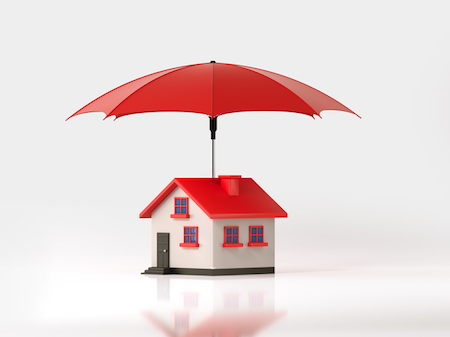
What Homeowners Insurance Does and Doesn't Cover
If you own a house, homeowners insurance is a necessity. A storm might damage your home, your belongings might be stolen, or someone might be injured. Without homeowners insurance, you would be responsible for paying those bills, which could easily total thousands of dollars. Homeowners insurance can protect you in many instances, but not always. It’s important to understand what a policy does and doesn’t cover.
What Homeowners Insurance Covers
A homeowners insurance policy provides coverage for specific perils, or things that could cause damage, injuries or losses. A typical policy will cover damage to your house caused by a storm or fire. A policy covers the house itself, as well as a garage, deck, porch or shed. If your home is damaged by a covered peril and you’re not able to live there while it’s being repaired, your homeowners insurance policy should cover your living expenses in the interim.
A homeowners insurance policy also covers personal property. It will pay to replace your belongings if they’re stolen, damaged or destroyed by a covered peril. If you own expensive items, such as jewelry or furs, you may need to purchase additional coverage with higher limits to cover the value of those items.
Homeowners insurance can also protect you from financial liability for injuries to others. For example, if a guest falls on your property and is injured, your homeowners insurance policy will pay for related medical bills and legal expenses.
What Insurance Doesn’t Cover
A typical homeowners insurance policy doesn’t cover all types of natural disasters. Most policies do not cover flooding or earthquakes, although you might be able to purchase additional coverage to protect yourself from those perils. These types of coverage are not available in all locations.
A homeowners insurance policy might cover damage caused by a burst water pipe, but a claim could be rejected if the pipe bursts because of a lack of maintenance or insulation. Some policies cover mold, but the company may only pay if the mold was caused by a burst pipe. Policies typically do not cover sewer backups, although it may be possible to purchase additional coverage for this peril. Injuries caused by dog bites may or may not be covered, depending on the breed.
Deductibles
When you file a homeowners insurance claim, you will typically need to pay a deductible. This is an amount set by the policy that the policyholder needs to pay before the insurance company will pay the remainder of the value of the claim.
Talk to Your Insurance Agent
Damage, accidents and injuries can occur at any time, and they can be expensive to address. Homeowners insurance can protect you in many, but not all, circumstances. It’s important to ask your insurance agent exactly what is and is not covered and whether you should pay extra for additional protection.



